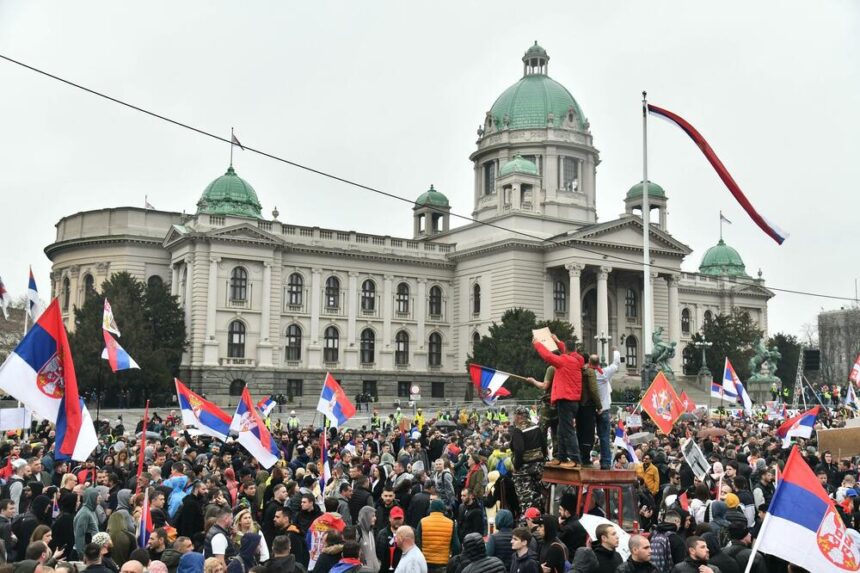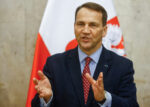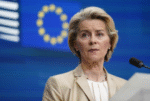Editors from Serbia’s independent media group, United Media, have warned that media freedom in the country is at a critical juncture due to increasing pressure from both government ministers and state-supported media. In an open letter published by The Guardian, the editors explained that their journalists are facing “constant harassment, physical attacks, and smear campaigns” due to their reporting on protests against the autocratic regime of President Aleksandar Vučić.
The letter, signed by prominent editors from outlets such as N1 Serbia (linked to CNN), highlighted the escalating attacks on independent journalism amid a political crisis and growing public discontent. The unrest has intensified following the tragic collapse of a railway station canopy in Novi Sad, which resulted in the deaths of 16 people last November. This tragedy sparked mass protests, culminating in the largest anti-corruption demonstration in Serbia’s history this month.
Civil society organizations have been sounding the alarm about the increasingly hostile environment for independent media, which has worsened since the Novi Sad incident. The editors noted that instead of addressing the real issues facing citizens, the government has focused on discrediting independent outlets, labeling them as foreign agents and enemies of the state. As a result, their journalists have faced attacks, intimidation, and attempts to prevent them from covering official events.
The press freedom watchdog, Reporters Without Borders (RSF), has warned that the pressure on Serbian media has reached levels not seen since the 1990s. RSF pointed to Serbia’s poor ranking of 98th out of 180 countries on the World Press Freedom Index, the lowest the country has ranked in 22 years.
Numerous incidents of hostility against independent journalists have been reported since the Novi Sad accident. Journalists from N1, such as Žaklina Tatalović and Nikola Popović, were subjected to sexist insults and physical violence during protests. Police were accused of failing to intervene despite clear evidence of the attacks.
The letter from the editors also condemned the false accusations made by President Vučić against journalists, claiming they “incite unrest” and use financial and regulatory pressure to turn advertisers and business partners away from independent media.
“We are deeply concerned for the safety of our journalists in the field,” the editors wrote, pointing to the increasing hostility against independent media. “The growing animosity, fueled by orchestrated rhetoric from the government, has created an environment where violence is not only allowed but encouraged.”
Over half a million people have signed an online petition calling for an independent investigation into whether Serbian security forces used sound weapons—described in the petition as a “sound cannon”—during protests on March 15. While the government denies the use of such weapons, footage from the protests shows masses dispersing suddenly, with many reporting symptoms associated with sonic weapons.
The pressure on President Vučić is mounting as protests continue to grow, and his government has faced significant challenges, including the resignation of several officials following the Novi Sad incident. The demand for accountability and transparent institutions based on the rule of law is stronger than ever.







